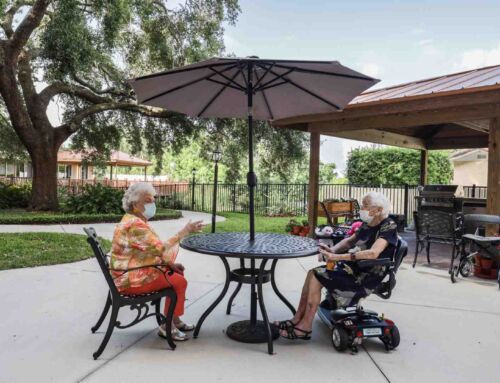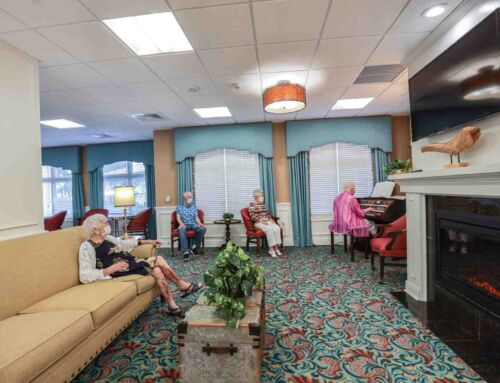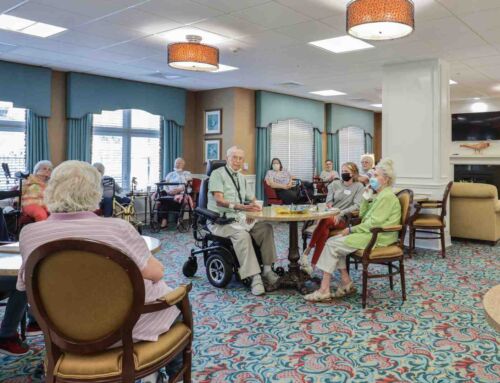Respite Care for Dementia Patients: Top 5 Essential Benefits
Respite care for dementia patients is a lifeline for caregivers and their loved ones. At its core, it’s about offering a much-needed break and support. This type of care helps maintain the balance between the demanding role of caregiving and personal well-being.
Quick Facts:
– Caregivers for dementia patients often experience more stress and strain.
– Respite care provides short-term relief and support at home or in a care facility.
– It helps delay the transition to full-time facility care.
– More dementia caregivers are using respite care than other caregiver types.
Caring for someone with dementia is rewarding but challenging. The physical and emotional demands can take a toll, often leading to burnout if left unchecked. Unfortunately, many caregivers don’t even realize how much they’re juggling. They might just see it as a duty—a family obligation. But, this mindset can prevent them from seeking help when they need it.
Respite care is about recognizing this need and offering a break. It’s here to relieve stress and help caregivers recharge, so they can continue supporting their loved ones. Plus, for those in Sun City Center, FL and surrounding areas, there are various community-focused options available. By embracing respite care, caregivers can ensure the well-being of both themselves and the patients.

Simple guide to respite care for dementia patients:
– respite care for adults with mental health
– respite care for behavioral health
– respite care services
Understanding Respite Care for Dementia Patients
Respite care for dementia patients is a lifeline that offers crucial benefits for both caregivers and their loved ones. It’s not just a service; it’s a form of support that helps maintain the balance between caregiving responsibilities and personal well-being.
Benefits of Respite Care
For Caregivers:
-
Stress Relief: Caring for someone with dementia can be overwhelming. Respite care gives caregivers a chance to rest and recharge, reducing the risk of burnout.

-
Time for Self-Care: Whether it’s running errands, attending a doctor’s appointment, or simply relaxing, respite care provides the time needed to focus on personal needs.
-
Peace of Mind: Knowing that their loved one is in a safe and supportive environment allows caregivers to relax and enjoy their break.
For Patients:
-
Engagement and Social Interaction: Respite care often includes activities designed to engage dementia patients. These activities help stimulate their minds and provide social interaction with others facing similar challenges.
-
Safe Environment: Respite care centers and services ensure that patients are in a secure setting, which is crucial for their safety and well-being.
Patient Engagement
One of the significant benefits of respite care for dementia patients is the opportunity for meaningful engagement. Activities custom to their abilities and interests can improve mood and cognitive function. Patients can participate in music therapy, art classes, and group games, all designed to promote interaction and enjoyment.
In Sun City Center, FL, community-focused respite care options are available, ensuring that both caregivers and patients benefit from these services. By incorporating respite care into their routine, caregivers can maintain their health and well-being while providing better care for their loved ones.
Types of Respite Care Services
When it comes to respite care for dementia patients, there are several options available to fit different needs and preferences. Let’s explore the three main types: in-home care, adult day centers, and long-term care communities.
In-Home Care
In-home care is a flexible option that allows dementia patients to stay in the comfort of their own homes while receiving the assistance they need. This type of care can range from a few hours a day to overnight stays.
- Companion Services: These services provide companionship and supervised activities, helping patients feel less isolated.
- Personal Care Services: Assistance with daily activities like bathing, dressing, and toileting ensures that patients maintain their dignity and hygiene.
- Homemaker Services: Tasks like meal preparation, laundry, and shopping are handled, making life easier for both the patient and caregiver.
- Skilled Health Care: For those needing medical attention, skilled health professionals can manage medications and other health-related tasks.
Adult Day Centers
Adult day centers offer a structured environment where dementia patients can engage in activities designed to match their abilities. These centers are ideal for patients who enjoy social interaction and benefit from a routine.
- Planned Activities: From music therapy to art classes, these activities are custom to stimulate the mind and provide enjoyment.
- Safe Environment: Patients are in a secure setting, reducing the risk of wandering or confusion.
- Meals and Transportation: Many centers provide meals and transportation, adding convenience for caregivers.
Long-Term Care Communities
For caregivers needing an extended break, long-term care communities offer temporary stays ranging from overnight to several weeks.
- Supervised Environment: These communities provide a safe and supervised environment, ensuring that patients receive quality care.
- Social Opportunities: Patients can interact with others, promoting social engagement and reducing feelings of loneliness.
- Variety of Activities: Engaging activities help keep patients active and mentally stimulated.

In Sun City Center, FL, these respite care options are designed to support both caregivers and their loved ones. By choosing the right type of respite care, caregivers can find relief and peace of mind, knowing their loved ones are in capable hands.
Finding and Choosing Respite Care
When looking for respite care for dementia patients, it’s important to find a service that meets both the caregiver’s and the patient’s needs. Here are some tips to help you make the right choice:
Use the ARCH National Respite Locator
The ARCH National Respite Locator is a helpful tool for finding respite care services in your area. This online resource allows you to search for local providers, making it easier to find the right fit for your loved one.
Explore Financial Assistance Options
Cost can be a major concern when considering respite care. Fortunately, there are financial assistance options available:
- Government Programs: Check if your loved one qualifies for programs like Medicaid, which may cover some respite care costs.
- Sliding Scale Fees: Some providers offer fees based on income, making services more affordable.
- Scholarships and Grants: Organizations like the Alzheimer’s Association may offer grants to help cover respite care expenses.
Contact the local Alzheimer’s Association for more information on available financial aid.
Ensure Service Reliability
Reliability is crucial when choosing respite care. Here’s how to ensure you select a dependable provider:
- Check Qualifications: Make sure the caregivers are certified and have experience working with dementia patients.
- Read Reviews: Look for feedback from other families to gauge the quality of care provided.
- Conduct Interviews: If hiring independently, interview potential caregivers and check their references thoroughly.
Make a Well-Informed Choice
Finding the right respite care involves considering various factors, including:
- Location: Choose a provider close to home to reduce travel time and stress.
- Services Offered: Ensure the provider offers services that match your loved one’s needs, such as medical care or social activities.
- Trial Visits: Consider arranging a trial visit to see how your loved one adjusts to the new environment.
By taking advantage of these resources and tips, caregivers in Sun City Center, FL can find reliable and supportive respite care options, ensuring peace of mind and quality care for their loved ones.
Costs and Financial Assistance for Respite Care
Understanding the costs and financial assistance options for respite care for dementia patients is crucial. Here’s a breakdown of some key aspects to consider:
Medicare Coverage
Medicare provides limited coverage for respite care. Typically, it covers short-term respite care if it’s part of the hospice care benefits. This means if your loved one is terminally ill and receiving hospice care, Medicare may cover up to five consecutive days of respite care to give the primary caregiver a break.
Medicaid Assistance
Medicaid can be a helpful resource for covering respite care costs. However, the coverage varies by state. Some state Medicaid programs offer waivers specifically for respite care services, which can significantly reduce out-of-pocket expenses. It’s essential to check with your state’s Medicaid office to understand the specific benefits and eligibility requirements.
Private Insurance
Private insurance policies may offer some coverage for respite care, but this is not always guaranteed. It’s important to review the policy details to see what is included. Some long-term care insurance plans may cover respite care services, so it’s worth checking if your policy offers this benefit.
Other Financial Assistance Options
-
Local Organizations: Some local nonprofits or community groups offer financial assistance or subsidized respite care services. These organizations may use a sliding-scale fee model, which adjusts costs based on your income.
-
Veteran Benefits: If your loved one is a veteran, the Department of Veterans Affairs (VA) might provide support for respite care. The VA offers programs that can help cover the cost of respite services for eligible veterans.
-
Family and Friends: Don’t overlook the possibility of informal support from family or friends. They can often provide care at no cost, helping to lighten the financial burden.
Exploring these financial assistance options can help make respite care more accessible and affordable for families in Sun City Center, FL. Taking time to understand these resources can provide much-needed relief and support for both caregivers and their loved ones.
Frequently Asked Questions about Respite Care
Is respite care good for dementia patients?
Absolutely! Respite care for dementia patients offers numerous benefits. For caregivers, it provides much-needed relief from the daily demands of caregiving, reducing stress and preventing burnout. This time off allows caregivers to recharge, attend to personal errands, or simply relax.
For patients, respite care offers a chance to engage with others and participate in activities that match their abilities and interests. Whether it’s through social interaction at an adult day center or personalized care at home, patients can enjoy a supportive environment that caters to their needs. This interaction can be incredibly beneficial for their mental and emotional well-being.
How much does respite care cost for dementia patients?
The cost of respite care varies widely based on the type of service and location. In the United States, the average cost of adult day care is around $80 per day. In-home care by a home health aide might cost about $180 per day, while an overnight stay at an assisted living facility could be approximately $160 per day.
These are just averages. Costs can vary significantly depending on where you live. For example, prices in urban areas might be higher than in rural regions. It’s important to research local options in Sun City Center, FL, to get a better understanding of the costs in your area.
Does Medicare cover respite care for dementia?
Medicare’s coverage for respite care is limited. It typically covers respite care only as part of hospice care benefits. This means if your loved one is receiving hospice care, Medicare may cover up to five consecutive days of respite care to give the primary caregiver a break.
For those not in hospice care, Medicare does not generally cover respite services. However, Medicaid might offer some assistance, depending on your state’s specific program. It’s crucial to check with your state’s Medicaid office for details on eligibility and coverage.
Exploring these options can help you find the right balance of care and financial support for your loved one with dementia.
Conclusion
At Sun Towers Retirement Community, we understand the immense challenges faced by caregivers of dementia patients. Offering a comprehensive range of services, including Independent Living, Assisted Living, Memory Care, and Skilled Nursing, we are dedicated to providing a supportive environment that allows residents to “Age in Place.”
Caregiver support is at the heart of what we do. We recognize that caregiving can be both rewarding and exhausting. Our respite care services are designed to provide caregivers with the much-needed break they deserve. By entrusting your loved one to our compassionate and skilled staff, you can take time for yourself, knowing they are in good hands.
For the well-being of our patients, we focus on creating a nurturing environment that encourages social interaction and engagement. Activities are custom to meet the unique needs and interests of each individual, promoting mental and emotional health. This approach not only benefits the patients but also provides peace of mind to their families.
If you’re considering respite care options in Sun City Center, FL, we invite you to explore the respite care services at Sun Towers Retirement Community. Here, you will find a community committed to enhancing the quality of life for both caregivers and their loved ones.


















